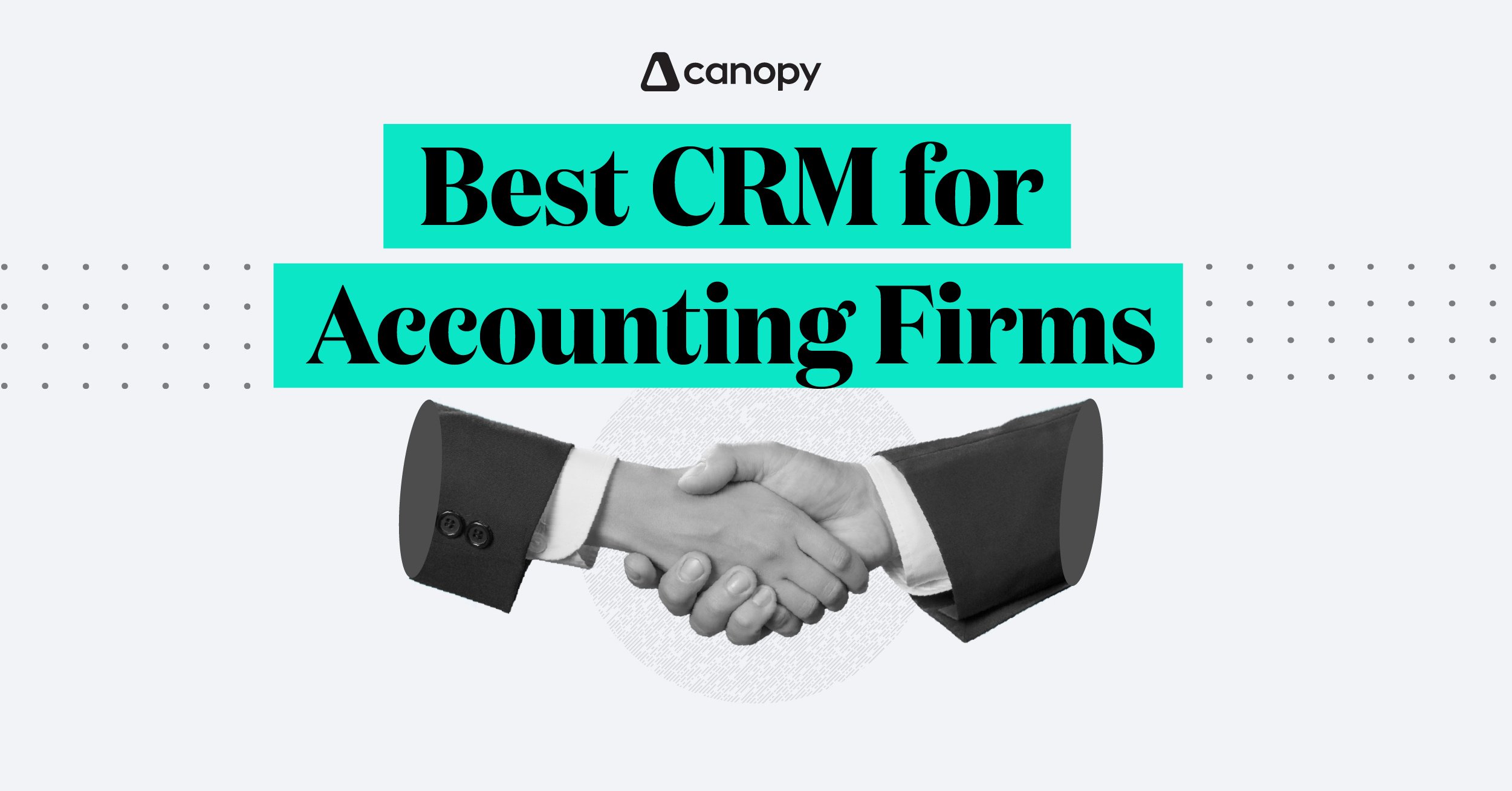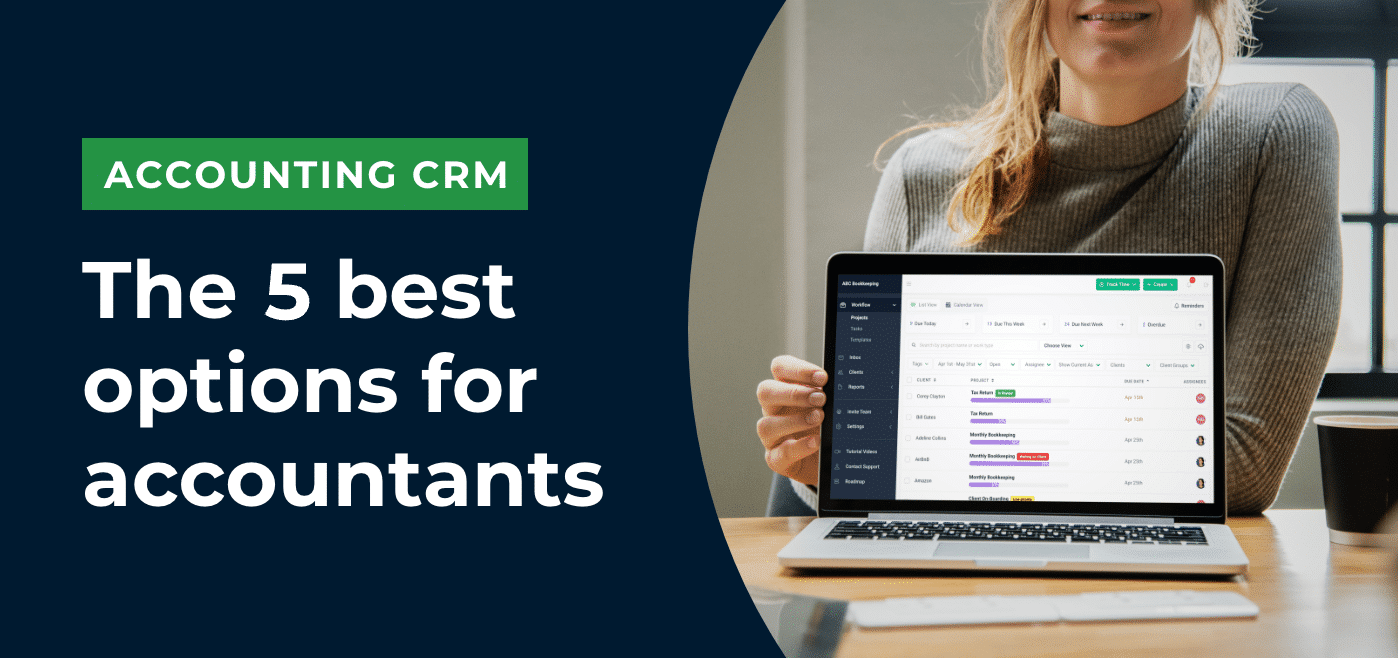crm accounting firm sets the stage for this enthralling narrative, offering readers a glimpse into a story that is rich in detail with casual formal language style and brimming with originality from the outset.
In today’s rapidly evolving financial landscape, accounting firms are embracing CRM solutions to streamline their client relationships and operational workflows. By leveraging CRM systems, these firms can address unique challenges such as maintaining client confidentiality, ensuring data security, and automating tedious processes. This powerful blend of technology and strategy empowers accountants to deliver more personalized services, enhance communication, and transform the client experience from ordinary to exceptional.
Introduction to CRM for Accounting Firms

In the competitive landscape of accounting services, managing client relationships has become a key differentiator for firms of all sizes. Customer Relationship Management (CRM) systems are designed to help accounting professionals nurture strong, lasting client connections while streamlining operational tasks and improving overall efficiency. By implementing a CRM, accounting firms can centralize client data, automate repetitive processes, and deliver more personalized service.
Accounting firms face unique challenges when it comes to client relationship management. Unlike many industries, accountants must balance strict confidentiality requirements with the need to provide proactive, tailored advice. Managing recurring tasks, complex compliance obligations, and fluctuating communication preferences adds to the complexity. Additionally, many firms still rely on spreadsheets or disconnected legacy systems, making it hard to track client communications, deadlines, and opportunities in a unified way.
Adopting a CRM solution brings fundamental benefits to accounting environments. Teams gain a single source of truth for client information, improved pipeline visibility, and easy access to communication histories. CRMs also enable automated reminders, robust document management, and secure collaboration, helping firms meet deadlines and maintain compliance. Ultimately, a well-integrated CRM drives client satisfaction and supports firm growth by fostering stronger, more organized relationships.
Essential Features of CRM Systems for Accountants
Accounting professionals require specialized CRM functionalities that go beyond traditional sales tools. To support the distinctive needs of accounting firms, a CRM should offer features tailored for client management, compliance, and integration with financial software.
| Feature | Description | Importance | Example Use Case |
|---|---|---|---|
| Client Data Management | Centralizes and organizes client profiles, including contact details, engagement history, and documents. | High | Accessing all contracts and correspondence for a client in one place before a meeting. |
| Task and Workflow Automation | Automates routine tasks, such as recurring billing reminders, document requests, and compliance checklists. | High | Sending automated reminders for quarterly tax filings to clients and team members. |
| Email and Calendar Integration | Syncs with email and scheduling tools for seamless communication tracking and appointment setting. | Medium | Automatically logging client email threads and adding follow-up calls to the firm’s calendar. |
| Secure Document Storage | Stores sensitive financial documents securely with version control and permission settings. | High | Uploading signed engagement letters and sharing tax forms securely with clients. |
| Reporting and Analytics | Generates insights on client engagement, revenue, and workflow efficiency. | Medium | Analyzing which service lines generate the most recurring revenue per client segment. |
| Compliance Tracking | Monitors deadlines and regulatory requirements, alerting teams to outstanding tasks. | High | Alerting staff about approaching deadlines for annual financial statement submissions. |
Custom-built CRM solutions offer tailored workflows and deeper integration with existing firm processes, making them ideal for larger or niche firms with unique requirements. However, development costs and ongoing maintenance can be significant. Off-the-shelf CRM platforms, such as Salesforce or Zoho, provide robust, ready-to-use features and frequent updates, making them attractive for small to midsized accounting practices. These solutions support fast deployment and easier user training but may require customization to fully match an accounting firm’s needs.
Integration with accounting software remains a high priority. Modern CRMs should connect seamlessly with platforms like QuickBooks, Xero, or Sage to synchronize client financial data, invoices, and project statuses. This eliminates duplicate data entry, improves accuracy, and provides a comprehensive view of the client relationship in one place.
CRM Implementation Process in Accounting Firms

Migrating to a CRM system represents a major shift for any accounting practice, requiring careful planning and execution to maximize value and minimize disruption. The following step-by-step process provides a structured approach for successful CRM implementation:
- Define clear goals and objectives for the CRM implementation, aligning with firm strategy and client service priorities.
- Assess existing workflows, pain points, and data sources to inform CRM selection and customization.
- Select the most appropriate CRM platform based on feature needs, scalability, and integration capabilities.
- Assign a project leader and implementation team, including IT, key accounting staff, and a management sponsor.
- Configure the CRM to match the firm’s workflows, security requirements, and compliance obligations.
- Develop a detailed data migration plan, mapping legacy data fields to CRM equivalents.
- Conduct data cleaning, deduplication, and validation to ensure accuracy pre-import.
- Import historical data and test CRM functionality with a pilot group of users.
- Deliver comprehensive user training and support materials tailored to different roles.
- Go live with the CRM system, monitoring for issues and collecting feedback for continuous improvement.
During CRM implementation, various roles are essential. The project leader manages the rollout, timelines, and communication. IT specialists handle integrations, security, and troubleshooting. Client-facing accountants provide feedback on workflows, while firm leadership sets priorities and allocates resources. Open communication across roles ensures a smooth transition and higher user adoption rates.
Data migration from spreadsheets or legacy systems is a critical and often underestimated step. Best practices include auditing all data for completeness, removing outdated or duplicate records, and standardizing data formats. Firms should run parallel systems temporarily to validate accuracy before decommissioning old tools. Documenting every stage of migration and involving end-users in testing helps avoid data loss and confusion.
Enhancing Client Relationships with CRM
A CRM system empowers accounting professionals to strengthen client relationships through consistent communication, timely service delivery, and personalized engagement. By leveraging automation and intelligent segmentation, accountants can proactively address client needs and demonstrate added value.
CRM platforms improve communication by centralizing all client interactions, making it easy to reference past conversations and deliver context-aware responses. Automated workflows ensure that essential touchpoints, like tax reminders or document requests, happen on time without manual follow-up. Personalization becomes effortless, as CRMs store preferences, milestones, and service histories for each client.
Using CRM, accounting firms can segment clients based on industry, service needs, or engagement frequency. This segmentation enables targeted marketing, tailored advice, and prioritized service. Automated follow-ups, such as birthday greetings or deadline reminders, further enhance the client experience and boost retention.
| Client Segment | CRM Action | Expected Result | Follow-up Frequency |
|---|---|---|---|
| High-Net-Worth Clients | Personalized quarterly financial review invitations | Improved satisfaction and increased advisory opportunities | Quarterly |
| Small Business Owners | Automated reminders for tax filings and compliance checks | On-time submissions and reduced penalty risk | Monthly/Quarterly |
| Startup Clients | Targeted newsletters about funding and tax credits | Higher engagement with relevant content | Monthly |
| Inactive Clients | Re-engagement campaigns via personalized emails | Increased chances of winning back business | Annually or as needed |
Conclusive Thoughts: Crm Accounting Firm

In summary, adopting a crm accounting firm strategy is a transformative move that not only boosts efficiency but also strengthens client relationships and future-proofs the practice. As technology continues to advance, firms that stay ahead with innovative CRM solutions will set themselves apart, driving growth and exceeding client expectations in a competitive market.
FAQ Resource
What is a CRM and how is it used in accounting firms?
A CRM, or Customer Relationship Management system, is used in accounting firms to organize client information, manage communications, track leads, schedule tasks, and automate client outreach, ultimately improving efficiency and client satisfaction.
Can CRM systems integrate with existing accounting software?
Yes, most modern CRM systems offer integration with popular accounting software like QuickBooks, Xero, or Sage, allowing seamless data transfer and workflow continuity.
Is it difficult to train accounting staff to use a new CRM?
Training needs vary by firm and CRM complexity, but most platforms are designed with user-friendly interfaces and offer onboarding support, tutorials, and ongoing help to make the learning curve manageable.
How does a CRM improve data security for client information?
CRMs enhance data security by providing features like access controls, data encryption, audit trails, and compliance tools, ensuring that sensitive client details are protected from unauthorized access.
What are some signs it’s time for an accounting firm to adopt a CRM?
If your firm is facing challenges like disorganized client communications, difficulty tracking client interactions, slow follow-ups, or information lost across multiple spreadsheets, it may be time to invest in a CRM.
